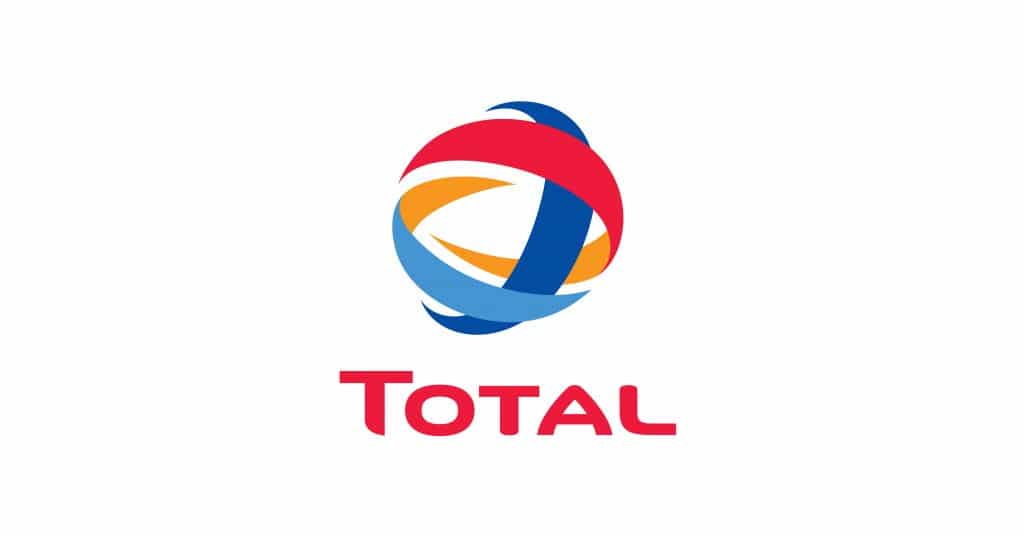Internships have long been considered valuable opportunities to gain relevant work experience and network with professionals in any field. They also help build your resume while working towards a degree.
You can still enjoy some of these benefits even with an unpaid internship. Read on to learn about the legality of unpaid internships and what you can get.
According to AllAboutCareers, unpaid internships are everywhere. Some for two weeks, others for a staggering nine months. A successful unpaid internship is seen to be similar to earning good grades in college.
Also, many students accept that they might have to do at least one unpaid internship to get a graduate job in a popular industry.
There are some negative qualities specific to unpaid internships, like the high exploitation of interns by employers. Notwithstanding, unpaid internships are still legal in many cases and beneficial to students.
This article will show you more about the legality of unpaid interns and the concept of the “Primary Beneficiary Test”. You’ll also get to know what you should do before an internship and the benefits you get from unpaid internships.
Below is a tabular representation of what you should expect.
Table of contents
- What Is An Internship?
- Are Unpaid Internships Legal?
- What Is the Primary Beneficiary Test for Unpaid Internships?
- Is There State Legislation On Unpaid Internships?
- What You Should Know Before You Apply For An Unpaid Internship
- What Can I Get From Unpaid Internships In 2024?
- FAQs On What Can I Get From Unpaid Internships In 2024?
- Conclusion
- References
- AUTHOR’S RECOMMENDATION
What Is An Internship?
UMBC Career defines an internship as a professional learning experience that offers meaningful, practical work related to a student’s field of study or career interest. An organization usually offers an internship for a limited period of time.
It gives a student (intern) the opportunity for career exploration and development and to learn new skills. It offers the employer the opportunity to do the following:
- Bring new ideas and energy into the workplace.
- Develop talent and potentially build a pipeline for future full-time employees.
Internships are classified as research-based or work experience (the majority), or virtual (working remotely). These classifications are also of two types: paid and unpaid internships.
Read this: 15 Types of Internships for International Students 2024 [Detailed Guide]
Are Unpaid Internships Legal?
From the general rule on internships, “the primary benefit test,” interns have to be paid if the intern’s work primarily benefits the company rather than the intern’s education, explains Heather Bussing, a California Bay Area employment lawyer. “The converse is that if the work primarily benefits the intern’s education, then the internship can be unpaid,” she further explained.
So here’s the thing:
If, during your internship, you are expected to show up for a certain period of time or complete working tasks that the company has set for you, then you are working for the company. This means that you are entitled to the National Minimum Wage, and the company is breaking the law.
It also means that you are not entitled to the National Minimum Wage if you are:
- Volunteering for a charity
- Undertaking placements for less than a year as part of further education or higher education course
- Taking part in some EU programs, such as Leonardo da Vinci, Erasmus, and Comenius.
Following the explanations above, can we say that unpaid internships are legal?
The short answer is yes. If the intern, not the employer, is the “primary beneficiary” of the work arrangement.
What Is the Primary Beneficiary Test for Unpaid Internships?
The US courts have used the “primary beneficiary test” to determine whether an intern or student is, in fact, an employee under the FLSA. In fact, this test allows courts to examine the “economic reality” of the intern-employer relationship. This is to determine which party is the “primary beneficiary” of the relationship.
The courts have identified the following seven factors as part of the test:
- Firstly, the extent to which the intern and the employer clearly understand that there is no expectation of compensation. Any promise of compensation, express or implied, suggests that the intern is an employee—and vice versa.
- Secondly, the extent to which the internship provides training that would be similar to that which would be given in an educational environment, including the clinical and other hands-on training provided by educational institutions.
- Thirdly, the extent to which the internship is tied to the intern’s formal education program by integrated coursework or the receipt of academic credit.
- Fourthly the extent to which the internship accommodates the intern’s academic commitments by corresponding to the academic calendar.
- Also, the extent to which the internship’s duration is limited to the period in which the internship provides the intern with beneficial learning.
- The extent to which the intern’s work complements, rather than displaces, the work of paid employees while providing significant educational benefits to the intern.
- Lastly, the extent to which the intern and the employer understand that the internship is conducted without entitlement to a paid job at the conclusion of the internship.
Suppose an analysis of these circumstances reveals that an intern or student is actually an employee. In that case, he/she is entitled to both minimum wage and overtime pay under the FLSA and vice-versa.
Check this: 20 Best Media Communications Internships In 2024
Is There State Legislation On Unpaid Internships?
Even with the set Primary Beneficiary Test, some employers still feel unbothered by it when hiring interns. Hence the need for state legislation to keep them in check.
In fact, many USA state governments pick up the slack where the federal government fails to set any strict requirements. While some states make the flexible guidelines of the seven-point test mandatory, many provide their own criteria.
For instance, New York includes that internships must provide transferable training rather than company-specific ones and cannot be of any “immediate advantage” to the employer, even when the intern is the primary beneficiary.
In fact, as outlined by the New York State Department of Labor in her Wage Requirements for Interns in For-Profit Businesses Factbook, “in most circumstances, interns will require employers to dedicate resources that may actually detract from the productivity of the worksite for some period”. This, in turn, makes it almost impossible for a company to profit from an unpaid internship.
On the other hand, the state of California has one of the strictest stances on unpaid internships. In California, all internship programs must be conducted through and supervised by an accredited school or vocational program.
In addition, employers must submit an internship proposal to the Division of Labor Standards Enforcement before hiring. Any internship that fails to meet these standards must pay minimum wage.
What You Should Know Before You Apply For An Unpaid Internship
Basically, when looking for an internship that doesn’t offer pay, you want to be sure you’ll actually get something out of it.
So here is what you should do:
First of all, ask the organization if it supports the submission of a summary of the work for education credit. According to Bischoff, this question will determine whether the internship should be unpaid or not.
Secondly, look for signs that the company has a formal internship program in conjunction with local colleges and universities.
This is because, ideally, interns should earn college credit for the internship. Also, the university will partner with the organization to reflect that the internship is primarily academic in nature.
It also means that as an intern, you should have a clear start and end date corresponding to your school semester or summer break, not the company’s operational calendar or productivity needs.
Get a guide on how to write your internship cover letter. See these Cover Letter for Internship That Won | Samples and Writing Tips
What Can I Get From Unpaid Internships In 2024?
Even in the absence of financial benefits in an unpaid internship, interns do not lose out completely. In fact, they get to enjoy other benefits.
Here are the benefits of Unpaid Internships:
Networking
This should be part of your focus and top strategy when searching for a new job. The networks and personal connections you make and the mentoring you receive can’t be found in a college classroom.
Therefore, ensure you establish strong connections during an internship, as it can result in quality job leads when you graduate. Also, your networks can become valuable references when you apply for full-time positions.
Professional Standards
The knowledge and skills required to be successful in the workplace are not usually taught in any college or university. While colleges have their own pace and varying schedules, most professional environments have more rigid schedules, dress codes, and other policies.
So as a college student who’s in an unpaid internship, you will get to know the professional standards of your field even though you’re not getting a financial benefit.
Career Exploration
Just like paid internships, an unpaid internship gives you the opportunity to explore and learn more about your career.
Also, it’s better to find that a preferred career might not be a good fit for you during an internship than during your first months on a job after graduation.
Even though an entire professional field cannot be assessed from one internship, if it doesn’t feel like a good fit, you have time to figure out why.
Also, read this: 15 Best Paid Internships In Thailand In 2024
Teamwork And Interpersonal Relationships
Working in an office with other professionals and possibly clients basically requires developing strong people skills. This includes and is not limited to navigating issues with a difficult boss, learning how to express opinions objectively, being part of a team, and compromising.
Dealing With Conflict
The reality is that not everyone is a team player, at least not the same kind of team player you are or hope others will be.
So, learning how to work with others who are difficult to work with takes hands-on experience, as does learning how to avoid being the one who is difficult to work with.
Resume-Building
Your experience as an intern typically adds to your resume.
For instance, when most hiring managers review resumes, they won’t be all that interested in the applicant’s transcripts or GPA. However, they will want to know what practical experience he/she managed to gain as a student.
This is where your experience from the unpaid internship comes in, as you will have something to build your resume.
You may also like to read the 15 Types of Internships for International Students [Detailed Guide]
FAQs On What Can I Get From Unpaid Internships In 2024?
An internship is a professional learning experience that offers meaningful, practical work related to a student’s field of study or career interest.
The short answer is yes, only if the intern, not the employer, is the “primary beneficiary” of the work arrangement.
The US courts use the primary beneficiary test to examine the “economic reality” of the intern-employer relationship to determine which party is the “primary beneficiary” of the relationship.
The courts have identified the following seven factors as part of the test:
1. The extent to which the intern and the employer clearly understand that there is no expectation of compensation. Any promise of compensation, express or implied, suggests that the intern is an employee—and vice versa.
2. The extent to which the internship provides training that would be similar to that which would be given in an educational environment, including the clinical and other hands-on training provided by educational institutions.
3. The extent to which the internship is tied to the intern’s formal education program by integrated coursework or the receipt of academic credit.
4. The extent to which the internship accommodates the intern’s academic commitments by corresponding to the academic calendar.
5. The extent to which the internship’s duration is limited to the period in which the internship provides the intern with beneficial learning.
6. The extent to which the intern’s work complements, rather than displaces, the work of paid employees while providing significant educational benefits to the intern.
7. The extent to which the intern and the employer understand that the internship is conducted without entitlement to a paid job at the conclusion of the internship.
1. Networking
2. Professional standards
3. Career Exploration
4. Teamwork and interpersonal relationships
5. Dealing with conflict
6. Resume-building
Conclusion
In the absence of financial compensation, unpaid internships do come with some benefits. For instance, doing a good job leads to increased opportunities for the future, especially when being evaluated directly against other students or employees.
However, before you apply, find out if the organization supports the submission of a summary of the work for education credit. Also, find out if your unpaid internship arrangement is legal using the primary beneficiary test.
Good Luck And Success!!!
References
- FindLaw – Unpaid Internship Rules
- TheBalanceCareers – The Benefits of Doing an Unpaid Internship
- BusinessNewsDaily – Work Experience or Free Labor? Learn What Makes Unpaid Internships Legal
- Monster – Is your unpaid internship legal?
- Investopedia – Unpaid Internship Impact on the L
- National Geographic Internships
- International Monetary Fund Internship Program
- Google Business Internship For young Africans
- 15 Best Sports Management Internship Opportunities
- 20 Benefits Of Social Media For Students
- 20 Cheap Vacations For College Students | Best Locations
- 10 Powerful Benefits of Meditation for College Students | Best Advice
DISCLOSURE: This post may contain affiliate links, meaning when you click the links and make a purchase, we receive a commission.






1 comment
Comments are closed.